Search
Remove Ads
Advertisement
Summary 
Loading AI-generated summary based on World History Encyclopedia articles ...
Search Results

Definition
Roman Empire
The Roman Empire, at its height (c. 117), was the most extensive political and social structure in western civilization. Building upon the foundation laid by the Roman Republic, the empire became the largest and most powerful political and...
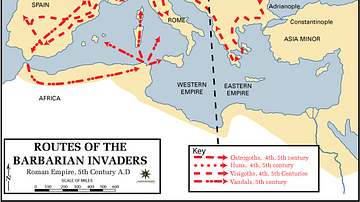
Definition
Western Roman Empire
The Western Roman Empire is the modern-day term for the western half of the Roman Empire after it was divided in two by the emperor Diocletian (r. 284-305 CE) in c. 285/286 CE. The Romans themselves did not use this term. At its height (c...
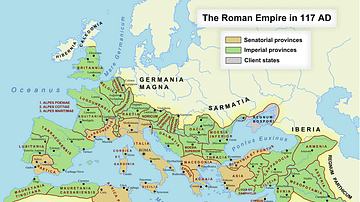
Article
The Extent of the Roman Empire
Time has seen the rise and fall of a number of great empires - the Babylonian, the Assyrian, the Egyptian, and lastly, the Persian. Regardless of the size or skill of their army or the capabilities of their leaders, all of these empires fell...
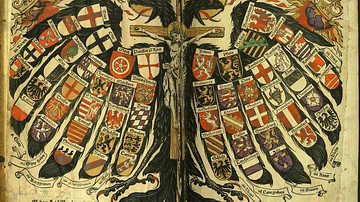
Definition
Holy Roman Empire
The Holy Roman Empire officially lasted from 962 to 1806. It was one of Europe’s largest medieval and early modern states, but its power base was unstable and continually shifting. The Holy Roman Empire was not a unitary state, but a confederation...
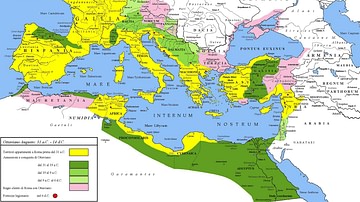
Image
Roman Empire under Augustus
A map of the Roman Empire during the reign of Augustus 27 BCE - 14 CE. Yellow areas indicate the empire prior to Augustus' reign, green areas those gained subsequently, violet areas are client states of Rome.

Image
Roman Empire in 117 CE
Map of the Roman Empire at its maximum extent in 117 CE, under the rule of Trajan.
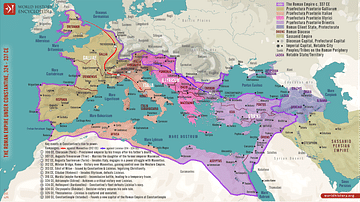
Image
Roman Empire under Constantine, 324-337 CE
This map illustrates Constantine I's (also known as Constantine the Great, c. 272-337 CE) rise to power, beginning with his proclamation as emperor by his troops in 306 CE and solidified through key military victories, including the Battle...
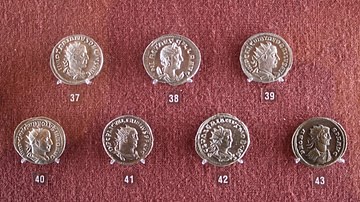
Image
Roman Empire Silver Coins
Silver coins from the Roman Empire (1st - 3rd century CE) depicting various emperors. 37 Trajan. 38 Etrusclia. 39 Trebonianus Gallus. 40 Volusian. 41. Valerian I. 42. Valerian II. 43 Probus. (Numisamtics Museum, Athens)
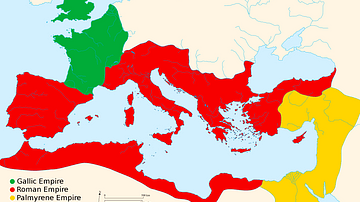
Image
Roman Empire 271 CE
The Roman Empire by 271 CE before the reconquests of the Palmyrene Empire and Gallic Empire by Aurelian.

Article
Fall of the Western Roman Empire
To many historians, the fall of the Western Roman Empire in the 5th century CE has always been viewed as the end of the ancient world and the onset of the Middle Ages, often improperly called the Dark Ages, despite Petrarch's assertion. Since...